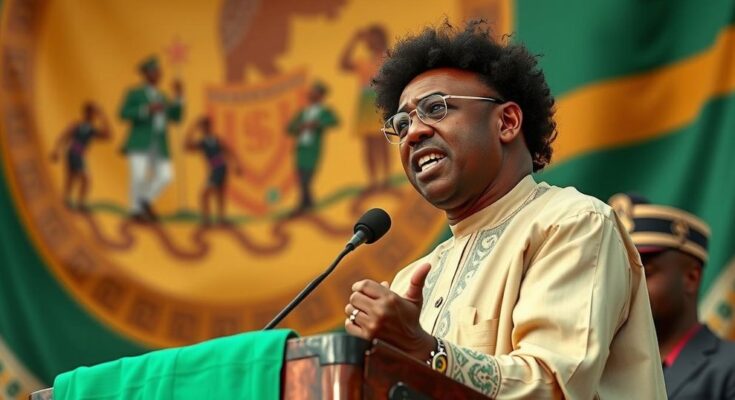Former Kaduna State Governor Nasir el-Rufai’s recent political shift to the Social Democratic Party raises critical concerns about his history of violence and intolerance. His family’s threatening rhetoric indicates a troubling inclination towards promoting violence within communities, especially in Southern Kaduna. Despite claims of pursuing peace and safety, his administration’s actions contributed to escalating violence, culminating in Kaduna becoming the most dangerous state in Nigeria for various ethnic groups. As he attempts to rebrand, observers remain cautious about his actual commitment to pluralism and governance.
In a recent political development, former Kaduna State Governor Nasir el-Rufai left the All Progressives Congress (APC) to join the Social Democratic Party (SDP). His son, Bashir, subsequently warned that residents of Southern Kaduna would face severe repercussions should they continue to attack the Fulani herdsmen. This incident raises alarming issues regarding the lack of resolution for communal conflicts, the promotion of violence, and the indiscriminate threats made against a specific community.
Historically, Governor el-Rufai has continued a pattern of threatening behavior since at least January 2019 when he warned foreign observers against interfering in Nigeria’s electoral process, stating they would return in “body bags.” Such statements reflect a broader family tendency to adopt a confrontational stance against dissent and criticism.
Abubakar Idris, known as “Dadiyata,” criticized the APC and mysteriously vanished in August 2019, with ongoing campaigns for his whereabouts under the hashtag WhereIsDadiyata. Bashir el-Rufai tweeted ominous comments suggesting that dissenters could face dire consequences, demonstrating the family’s disregard for dissent.
Additionally, in March 2020, Bashir’s brother, Bello, displayed similar hostility through troubling verse, indicating an acceptance of using violence to maintain their political identity. Despite promising to improve security, el-Rufai’s tenure saw increased violence, with many critics tortured or worse, clearly contradicting his initial promises of safety.
As governor, el-Rufai did not tolerate opposition, committing acts of violence against his critics, including the demolishment of homes of fellow party members who disagreed with him. His administration was marked by a surge in ethnic violence, particularly in Southern Kaduna, where he was accused of ignoring or even supporting violent campaigns against minority populations.
Kaduna’s historical backdrop of violence intensified under el-Rufai’s governance. His administration displayed marked intolerance towards critics, which was reflected in statistical data, showing that Kaduna surpassed Borno State as the most dangerous area in Nigeria, moving from 411 recorded atrocity-related casualties in 2015 to over 1,100 in subsequent years.
El-Rufai’s administration employed various segregation tactics that heightened sectarian divides. The patterns of violence appeared systematically directed against specific ethnic and religious groups, particularly in Southern Kaduna. Many perceive el-Rufai’s policies as exacerbating rather than alleviating existing tensions, leading to accusations of complicity in ongoing violence against non-Muslim populations.
As of 2023, following el-Rufai’s departure from office, reports indicate a significant decrease in violence in Kaduna. Observers attribute this improvement solely to the change in leadership, emphasizing how his administration’s approach had intensified existing conflicts.
Throughout his political career, el-Rufai has made comments that suggest a deep-seated intolerance towards political opponents. His hunger for power seems insatiable, now attempting to recast himself as a proponent for pluralism. This effort to rebrand raises concerns about his true commitment to peaceful governance and respect for the diverse communities in Nigeria.
In conclusion, Nasir el-Rufai’s political journey showcases a troubling pattern marked by threats, violence, and a disregard for human rights. His departure from the APC and transition to the SDP does not erode the violent legacy he leaves behind in Kaduna State. The ongoing violence and alarming comments from his family reflect a significant challenge to national stability. As el-Rufai seeks to reinvent his political persona, it remains imperative for voters and political allies to critically evaluate his past actions and their implications for Nigeria’s future governance.
Original Source: gazettengr.com




